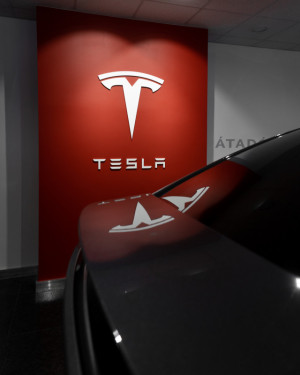
University of Bolton, Deane Road, Bolton. BL3 5AB
Tel:
Email:


“At the University of Bolton, we take great pride in providing a quality, supportive learning environment for our students.”
Professor George E Holmes DL | President & Vice Chancellor
“...tutors are very supportive and you’re not just a student ID number, at this university you are an individual with a name.”
Ellisse Vernon | BSc (Hons) Adult Nursing
Back to menu
Back to menu
Study with an Off-Campus Partner
Back to menu
Back to menu
University of Bolton, why we are the right choice
Location - Bolton, Greater Manchester

15/12/2022
Our MSc in Electrical and Electronic Engineering is designed to give engineering graduates increased knowledge and abilities in this specialised area. This course will cover embedded systems, intelligent engineering, power electronics, electrical machine and drive systems, and other crucial topics as our committed staff work to position you for a future in this forward-thinking sector.
Learn about the five most important electronic engineers in history and their part in improving the world we know today. Read more details about the MSc Electrical and Electronic Engineering course here.
Expected learning outcomes from the course at Bolton University
Our MSc in Electrical and Electronic Engineering is designed to give you the most comprehensive possible understanding of the subject area. After completing the course, you should fully grasp the subject’s theoretical and practical aspects.
The MSc course will allow you to enter the workforce as an electronic engineer or continue your studies in doctoral-level programmes. Additionally, the course will enable students to tailor their studies towards specific areas of interest within the subject area.
The course promotes more profound knowledge and understanding of the following:
- Design of analogue circuit components (transistors, resistors, capacitors
- Design of digital circuit components (logic gates, adders, multipliers
- Design and construction of electrical machines and control systems
- Design and implementation of power electronics systems
- Advanced knowledge in the areas of communications engineering
- Knowledge in the areas of instrumentation engineering and embedded systems
Plus, in-depth knowledge of the application and use of the Internet-of-Things (IoT) in manufacturing. The above list is not conclusive but gives students an idea of what to expect.
Learning the following skills is promoted as part of the course:
- Measurement techniques for electronic devices
- Computer-aided design tools for electronic circuits
- Project management skills related to the design process
- Data analysis and presentation skills
- Knowledge of the safety and regulatory requirements for the industry
- Technical document writing skills, such as technical reports and specifications
Let’s now take a look at five of the most important electronic engineers in history!
 Nikola Tesla
Nikola Tesla
Nikola Tesla is important because he developed the alternating current (AC) electricity system. Tesla’s AC electrical power systems were the first to bring electricity from the generator to the consumer. It was the first step in modernising the world with electricity and improving society.
William Shockley
William Shockley is a dynamic figure in electronics because he invented the transistor, which revolutionised the computing world. The invention allowed computers to become smaller, faster and more reliable. The transistor also made possible the development of semiconductors used in the modern communication industry today.
John Bardeen
John Bardeen is another crucial electronic engineer who co-invented the transistor with William Shockley. Bardeen was the first to receive the Nobel Prize for the invention twice and is credited with developing the microchip. The microchip is the main component of many electronic devices and has been instrumental in manufacturing modern computers, smartphones, tablets and other devices.
Robert Noyce
Robert Noyce was an important figure in the electronics industry due to his co-invention of the integrated circuit (IC). His ICs were smaller than transistors, allowing them to be used in more compact applications. He also developed a technique with others called “planar” technology that helped make it easier to create complex circuits on a single chip.
Jack Kilby
Jack Kilby is the final electronic engineer on the list. He developed the first integrated circuit (IC) in 1958 and invented the hand-held calculator. His invention of the hand-held calculator was the first step in creating the computers we use today. His work revolutionised the electronics industry and facilitated the development of modern devices such as smartphones, tablets and laptops.
Why Study at the University of Bolton?
At Bolton University, our MSc Electrical and Electronic Engineering course prepares you with all the necessary skills to pursue a successful career in this field. Our degree programme is designed to equip you with the latest methods, technology and innovations in the electrical engineering sector.
At the end of the MSc Electrical and Electronic Engineering course at Bolton University, graduates should have acquired a comprehensive understanding of the subject matter, which graduates can apply in various industries worldwide.
If MSc in Electrical and Electronic Engineering sounds like the right path to becoming a specialist engineer, take a look at our full course details here to find out how to apply and see how far you can go!
For more information, please contact us at enquiries@bolton.ac.uk or at 01204 903807.